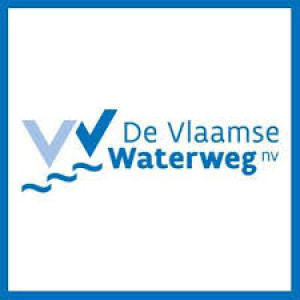Space
Space research has its main objective and challenge to foster a cost-effective competitive and innovative space industry (including SMEs) and research community to develop and exploit space infrastructure to meet future Union policy and societal needs.
Your NCP contact for this programme

Mark Antonissen
mark.antonissen@vlaio.be
+32 2 432 43 05
About this programme
Space research has its main objective and challenge to foster a cost-effective competitive and innovative space industry (including SMEs) and research community to develop and exploit space infrastructure to meet future Union policy and societal needs.
Building on the successes of the Seventh Framework Programme (FP7), Horizon 2020 will enable the European space research community to develop innovative space technologies and operational concepts "from idea to demonstration in space", and to use space data for scientific, public, or commercial purposes. This will anchor and structure space research and innovation at the European level and address key aspects identified in the Commission Communication “EU Space Industrial Policy: Releasing the Potential for Growth in the Space Sector”.
Actions will be carried out in conjunction with research activities of the Member States and European Space Agency (ESA), aiming at building up complementarity among different actors. For this purpose an enhanced coordination between the different actors is envisaged.
The Commission proposal for Horizon 2020 sets the following motto for EU Space R&D for 2014 to 2020 ‘Prepare for the increasing role of space in the future and reap the benefits of space now’.
The work programme has been structured to address these challenges by:
- Prioritising the existing two EU Space flagships of European Global Navigation Satellite System (EGNSS) and Earth Observation reaping the benefits they can generate in the coming years and ensuring their state-of-the-art also in the future;
- Ensuring support for the third priority of the EU space policy: the protection of space infrastructure, and in particular the setting up of a Space Surveillance and Tracking system (SST) at European level;
- Ensuring support to EU industry to meet the objectives defined in the Commission communication on Space Industrial Policy, notably to maintain and enhance industry’s competitiveness and its value-chain in the global market;
- Ensuring that Europe’s investments made in space infrastructure are exploited to the benefit of citizens; as well as supporting European space science; and
- Enhancing Europe’s standing as an attractive partner for international partnerships in space science and exploration.
Latest news
Upcoming events
Work Programme & Calls
Infosheets
Infosheets contain edited content on aspects related to this programme. They are reviewed at least yearly.
-
No infosheets available for this domain
Related links
Related links are easy pointers towards external information. We curate the list, but are not liable for the destinations.
Documents
Documents contain additional information related to this programme, and are similar to related links.
Testimonial

Autoship - a new and durable way of freight transport
Autoship is, as the name suggests, an acronym for autonomous ship. Just like with self-driving cars, the possibilities of an unmanned boat seem endless. It can create more efficient freight transport, around the clock deliveries and these are just a few of the examples. The project has two societal challenges.
At first, De Vlaamse Waterweg was a bit hesitant as their experience with FP7 or Horizon 2020 projects was limited and they had not been very successful up until then. The fact that they were already doing basic research on the topic of autonomous boats, and the administrative help of NCP FLanders helped De Vlaamse waterweg to cross the line and get involved.

